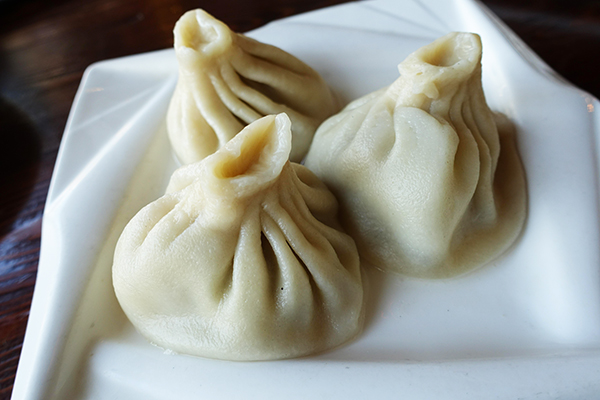An exotic feast of cheese, and Georgia's on my mind


There is an art to eating khinkali: the doughy top, where the pleats all meet, is not to be eaten, but used as a handle for holding the dumplings. So, pick up the dumplings using the top knot, and as you bring it to your mouth, take a tiny bite and slurp up the runny broth within. You can then enjoy the rest of the dumpling, and leave the top knots on the plate as a tally of how many you have consumed.
One dish I found it particularly moreish is chkmeruli, Georgian chicken cooked in garlic and milk sauce. Before I had tasted this, the combination of ingredients did not sound particularly inviting. In fact it turned out to be a compelling dish, no small thanks to the crispy golden skin and well-seasoned roasted chicken. The creamy garlic sauce does not taste greasy, nor heavy at all, but goes perfectly well with the delicious chicken.
One should also not miss Georgia's national soup, kharcho (38 yuan) made of beef, cherry tomato, onion, and celery. Kharcho delivers a distinct flavor with a blend of fragrant spices and herbs.
When I asked about the herbs, our cheerful chef went all KGB spy on me: "They are unique spices grown only in Georgia. The first thing to know is that the names are very difficult to pronounce, and the second is that they are top secret."
To obtain these herbs she has to go back to Tbilisi every three to six months, she said.
"In Georgia the soup can be made with or without rice. We do not put rice in it here so as to be more locally accepted."
Other must-tries at Georgia's Feast are eggplant stuffed with walnuts (32 yuan), Olivier salad (38 yuan), and the moist and delicious Napoleon dessert Georgian-style, the layers being soft and buttery instead of crispy.




































